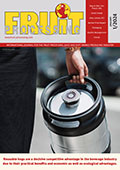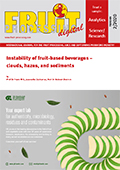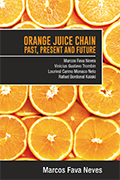COVID-19: Impacting Lifestyles and Eating Behaviors in Asia
As might be expected, there are high levels of concern among Asian consumers about the impact COVID-19 is having, both directly on their own lives and also on a global scale. According to Innova’s COVID-19 Consumer Survey (conducted in March 2020), in China, India and Indonesia, personal concerns center on…

As might be expected, there are high levels of concern among Asian consumers about the impact COVID-19 is having, both directly on their own lives and also on a global scale. According to Innova’s COVID-19 Consumer Survey (conducted in March 2020), in China, India and Indonesia, personal concerns center on health, personal income and the availability of healthcare and products to buy.
Personal health, and the health of family and friends, tops the list of concerns across all three countries, with impact on personal income/finances ranked as second. Indian consumers were the most concerned. 73 % of Indian consumers say that they were very concerned about their own and that of their family’s/friends’ health. This is compared with 58 % in China and 52 % in Indonesia.
Concerns over more global issues are led by healthcare and financial/economic uncertainty. Healthcare ranks the highest in India, with 79 % of respondents very concerned. Financial/economic uncertainty came out first in China and Indonesia, with 55 % and 68 % of respondents, respectively, saying that they were very concerned. Consumers in all three countries were also concerned about the impact on food and job security.
Changes in behavior driven by the pandemic include more working from home, more social media and online entertainment and even exercising inside the home, with lower levels of leaving the house, visiting cafes/bars and restaurants, travelling for business and pleasure and using public transportation.
Health considerations have become more influential on purchasing decisions, with consumers trying to eat more healthily and consuming products in a bid to boost immunity. These include ingredients such as turmeric in India, chrysanthemum and cordyceps flower in China and royal jelly, ginger and mint in Indonesia. Familiarity, comfort and improving mood are also seen as increasingly important factors for food and beverage choices during the crisis. Health, shelf-life and cost are taking on a greater significance with regard to purchasing decisions, while factors such as flavor and indulgence appear to be declining in importance. Innova Market Insight’s research indicated that the main changes in attitude/behavior in India and China included more cooking/preparing of homemade food, more healthy eating and more eating/drinking products to boost immune health.
Fresh fruit and vegetables and juices and nectars are some of the top categories benefiting from this trend, as consumers look to them as a means of boosting health. At the same time, consumers claimed to be purchasing lower levels of less healthy, indulgent and highly processed options, such as ice cream, pizza and cakes and pastries.
There has also been an acceleration in the growth of online grocery shopping as movements are restricted and physical stores cannot easily be accessed. The rise in grocery apps in China, for example, encompasses developments in supermarkets, dedicated grocery apps and food delivery platforms. Restaurants have been quick to offer home delivery, but many consumers are also willing to order online and go out and pick up takeout. In China, 37 % of consumers claimed to be ordering more restaurant/café food online, while 34 % were picking up takeout food and meals more often.









